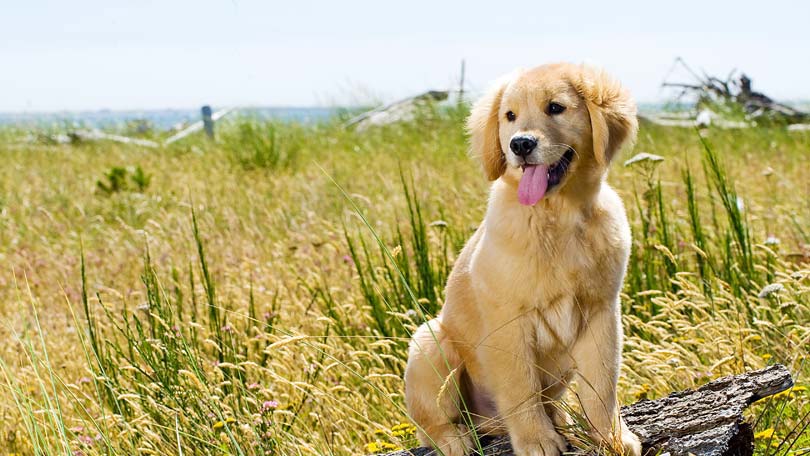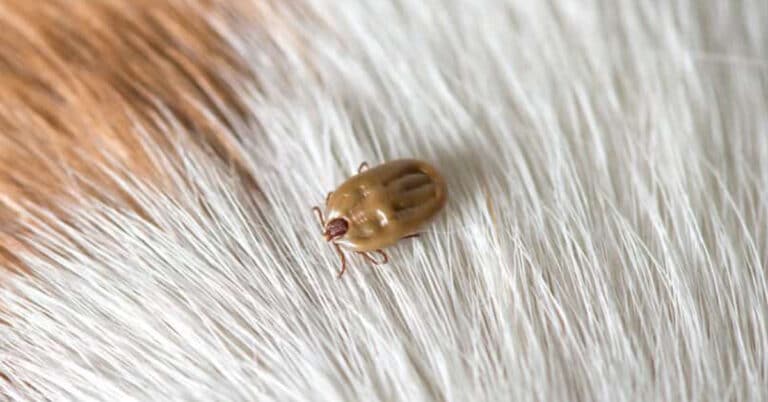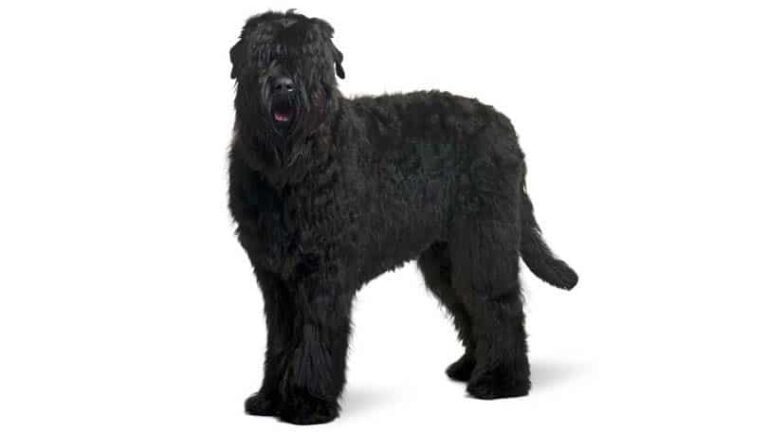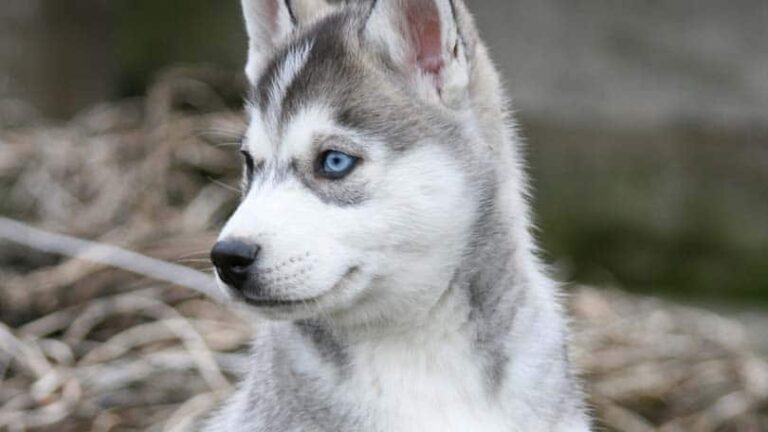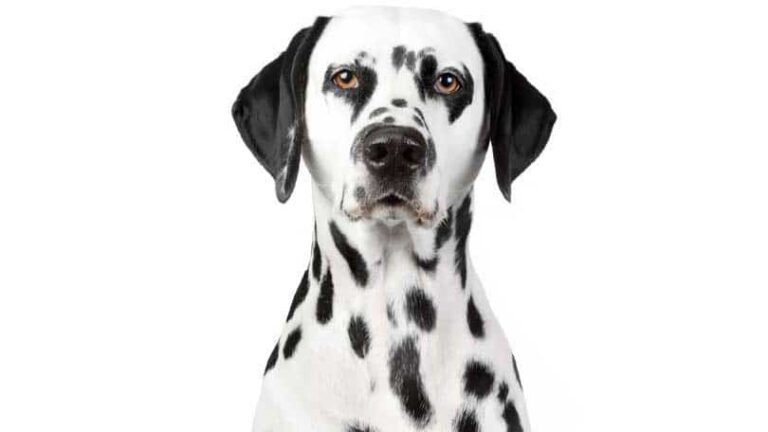Golden Retriever Breed Profile
Eager, Alert, Powerful, Self-Confident, Playful, Intelligent, Versatile, Gentle.

History and Origin of the Golden Retriever
In the 19th century, how humans hunt changed dramatically with the overall improvement of the common rifle. Hunters were able to shoot more accurately over greater distances and often would not be able to retrieve the game.
Sir Dudley Marjoribanks developed the Golden retriever in Scotland by crossing a Yellow-colored retriever and the now-extinct Tweed Water spaniel.
The Kennel Club first recognized the Golden retriever in 1903 under the heading Flat Coats – Golden. The first Golden recognized by the American Kennel Club was Lady in 1894. The Canadian Kennel Club recognized the breed in 1927.
AKC Show Standards*
General Appearance – A symmetrical, powerful, active dog, sound and well put together, not clumsy nor long in the leg, displaying a kindly expression and possessing a personality that is eager, alert and self-confident. Primarily a hunting dog, he should be shown in hard working condition
Size, Proportion, Substance – Males 23-24 inches in height at withers; females 21½-22½ inches. Dogs up to one inch above or below standard size should be proportionately penalized. Deviation in height of more than one inch from the standard shall disqualify. Length from breastbone to point of buttocks slightly greater than height at withers in ratio of 12:11. Weight for dogs 65-75 pounds; bitches 55-65 pounds.
Coat – Dense and water-repellent with good undercoat. Outer coat firm and resilient, neither coarse nor silky, lying close to body; may be straight or wavy.
Color – Rich, lustrous golden of various shades. Feathering may be lighter than rest of coat.
Gait – When trotting, gait is free, smooth, powerful and well coordinated, showing good reach.
Temperament – Friendly, reliable, and trustworthy. Quarrelsomeness or hostility towards other dogs or people in normal situations, or an unwarranted show of timidity or nervousness, is not in keeping with Golden Retriever character.
* Copied in part from the American Kennel Club breed standard
Color & Sub-Types
The range of golden in the breed varies from a creamy near white to a dark, rich golden and every shade in between. The only shades that are not recognized by the various kennel clubs are pure white or mahogany red on the other end of the spectrum.
British Type, American Type & Canadian Type
The British type golden retriever is a thicker, shorter, stockier dog then the American or Canadian counterparts. Other differences in the American Golden include the more angulation in the hind quarters, a finer head, thicker coat, and a slanted, triangle shaped eye. The Canadian Golden tend to be lighter in color then the American dogs but not the light creamy gold of the British dogs.
Field bred dogs are slightly smaller, finer, darker in color, and with a shorter, less dense coat more conducive to spending the day in the muck then the long, thick show coat seen on most Golden retrievers.
Temperament
Gentle, trusting, friendly, confident, and agreeable, heaven for a Golden retriever is as simple as spending time with people. And, unlike the one owner German Shepherd, the Golden is almost as happy in the company of strangers as they are with their own people. A wagging tail and excited bark may be indicators of the kids coming home from school, the mail man delivering the mail, or an intruder attempting to steal your valuables. The eager to please Golden is quick to forget past hurts and will always expect the same from others.
An intelligent breed, Goldens are easy to train and quickly pick up new concepts and ideas. Like many large breeds, Golden retrievers have a healthy admiration for food and can be bribed into doing just about anything. Goldens, with their trusting nature, do not make the best guard dogs although sometimes certain individuals can be protective of their home and/or people.
The Working Golden Retriever
With their ‘must please’ personality, Golden retrievers make dedicated, intelligent, and happy working dogs. Used as guide dogs, assistance dogs, drug detection dogs, and search and rescue dogs to name a few, the affable Golden is a welcome addition to any dog team.
Golden retrievers are also still used as field dogs. Their endless drive and easy disposition makes them ideal hunting dogs for the beginning dog handler although that is not the limit of the breed. Some of the top field dogs in history have been Golden retrievers and their numbers still fill the trial reports.
The versatile Golden can also be seen in the obedience ring as well as agility, flyball, tracking, and other dog sports.
Life Span & Health of the Golden Retriever
Golden retrievers have a life span of ten to twelve years however, some healthy individuals live to well past that to fifteen or sixteen.
Medical issues within Golden retrievers include:
Cancer is rampant in the breed. A survey conducted by the Golden Retriever Club of America in 1998 of dogs that passed away found that over 60% of them died of cancer. Hemangiosarcoma, lymphosarcoma, mast cell tumor and osteosarcoma are the four most common cancers.
Elbow and hip dysplasia is common in Golden retrievers. X-rays should be taken to evaluate breeding stock before being used.
Cardiomyopathy and subvalvular aortic stenosis are becoming more common in Golden retrievers.
Haemophilia
Eye conditions in Golden retrievers include cataracts, progressive retinal atrophy (PRA), glaucoma, entropion, distichiasis, corneal dystrophy and retinal dysplasia.
Bone and joint diseases in Goldens include luxating patella, osteochondritis, arthritis, panosteitis and overweight Goldens are especially prone to tearing an anterior cruciate ligament.
Environmental and flea allergies are common in Golden retrievers, often leading to ‘hotspots’ or acute moist dermatitis.
Due to a heavy earflap and thick fur, ear infections are common in Golden retrievers. Care must be taken to keep ears clean and dry.
Due to the popularity of Golden retriever, over breeding and ‘backyard’ breeding has taken its toll on this once healthy and active breed. Always screen a breeder before purchasing a Golden retriever and ask for proof of genetic testing of the breeding stock before signing a contract.
Famous Golden Retrievers
- Buddy from Air Bud and all the many sequels
- Liberty, President Gerald Ford’s Golden retriever
- Oprah Winfrey has three Goldens – Luke, Layla and Gracie
- Bush’s Baked Beans has Duke, the talking, recipe-stealing Golden
Golden Retrievers Facts
- Golden Retrievers are the world’s second most popular breed behind their relative the Labrador Retriever.
- Golden retrievers make wonderful working dogs and are used as assistance dogs, search and rescue dogs, detection dogs, and guide dogs.
- Golden retrievers were developed in the United Kingdomfrom Irish Setters, Bloodhounds, the St. John’s Water Dog and two other long, wavy coated black retrievers.
- In the book The Intelligence of Dogs by Stanley Coren, Golden Retrievers are ranked fourth.
- The Kennel Club first recognized the Golden retriever in 1903 as a Flat Coats – Golden distinction. By 1911, the name had changed to Retriever (Golden and Yellow) and in 1913 the first Golden Retriever Club was founded. In 1920, the name was officially changed to Golden retriever.
- Golden retrievers were the last of all the retriever breeds to be developed.

Having discovered a fondness for insects while pursuing her degree in Biology, Randi Jones was quite bugged to know that people usually dismissed these little creatures as “creepy-crawlies”.

